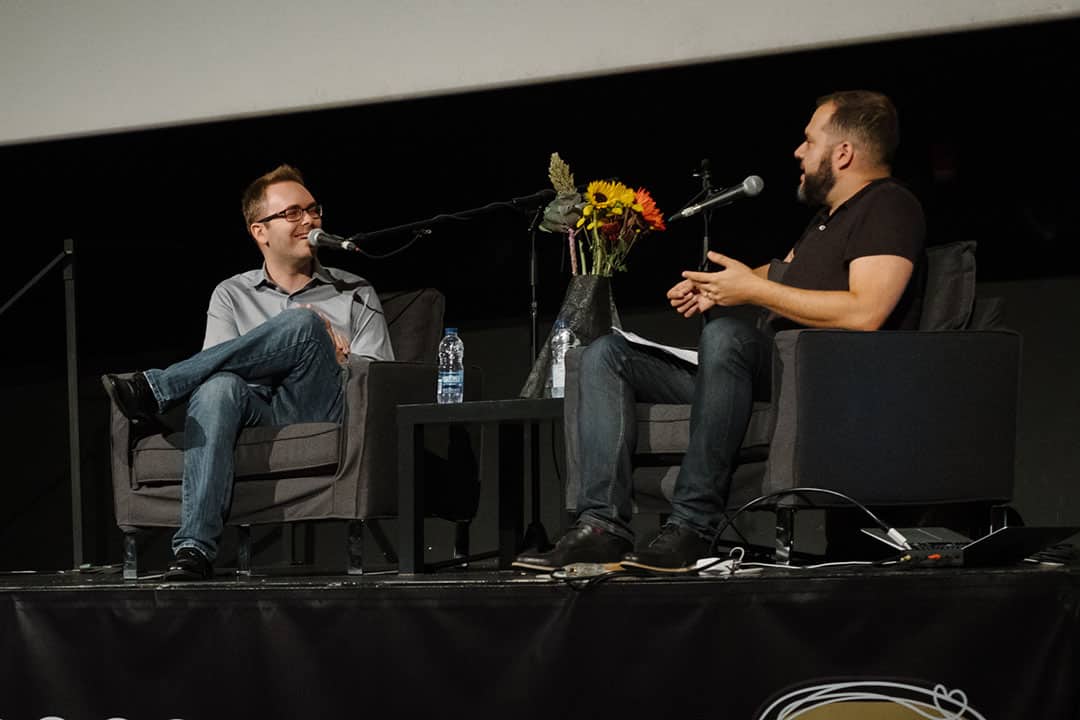Daniel Dale is blocked on Twitter by the world’s most powerful man: the wealthy real estate developer-turned reality TV star-turned President of the United States, Donald Trump. Dale is a soft-spoken but astute journalist covering a politician with a diametrically opposed personality. As the Toronto Star’s only reporter in Washington, he has the responsibility of being the sole deliverer of DC news to Canada’s largest daily — his task is weighty, but it’s one that he says is “awesome as a reporter, because you get to pick and choose what story to jump on.”
The Thornhill native made the trip back to the city for a taping of Jesse Brown’s hit media criticism podcast Canadaland, recorded live as part of the Hot Docs Podcast Festival. Before taping, Dale took some time to sit down for an interview with The Varsity.
Tackling Trump via Twitter
As soon as he wakes up in Washington DC — even before he puts his glasses on — Dale checks Twitter. “I wake up at seven something, and he’s usually tweeted by seven, and it’s like, ‘Has he already made a new claim? Am I already behind waking up at like 7:15 in the morning?’” he says. “Which is ridiculous.”
Twitter as a medium has, in a way, become a hallmark of Dale’s journalism and earned him a bit of a cult following, mostly due to his long-running, occasionally droll fact-checking of Trump. Pointing out inaccuracies ranging from incorrect tax rates to utter lies — like the time Trump lied about getting a congratulatory call from the leaders of the Boy Scouts — Dale’s feed is one I would recommend following.
And now it’s gotten him in hot water: blocked by the President of the United States. “I think it’s hilarious,” Dale says. “My editors and people I know were kind of outraged by it — and, in principle, I think it is troubling that a powerful politician would try and deny information to a journalist in even the most minor way.” Dale calls the block a “hilarious inconvenience,” though also revealing: “It tells us something about this man, this president, that even someone pointing out his inaccuracies on Twitter is enough that he doesn’t want to look at it.”
Twitter has become what many believe to be an invaluable tool in the journalist’s toolkit. But, as Dale warns, “Twitter is awful in an awful number of ways.” He says it can be bad for a journalist’s mental health, and that “it can wear you down if you spend too much time in your mentions.”
From Ford to… this?
Dale covered City Hall in the Rob Ford years — no easy task, and one that he barely escaped unscathed. Once, the former mayor chased and cornered him in a park near the mayor’s house with a raised fist. The wake of this incident would lead Dale to serve the mayor a libel notice.
The reporter says that there are “a lot of similarities” between Trump and Ford, including “the way that they have harnessed anti-elite sentiment” despite both characters’ elite status, and being “loudly, angrily anti-media in ways that their respective institutions hadn’t previously seen.”
He points out an interesting nuance in the difference between the Ford and Trump populisms: in some ways, Ford “sought to include members of diverse communities and minorities, whereas Trump is solely focused on white people.”
Dale is quick to note, though, that the “frequency and the needlessness of the dishonesty” from Trump has surpassed the level of outrageousness from Ford.
Given that he’s covered two brash, anti-media politicians, I asked Dale whether he thinks that the relationship between journalists and politicians should be mutually antagonistic. Not quite, he says. “It’s sort of one step calmer than that. It necessarily has to be a skeptical relationship: you’re not there to be their friends, but that doesn’t mean you’re there to be their enemies, either.”
It’s hard to escape covering Trump in today’s America. Dale was down in DC for the end of the Obama years, “covering America more broadly.” He thinks that if Hillary Clinton had won, his job “would be super different.”
“My job is almost exclusively covering Trump,” Dale says. “He’s all anyone wants to read about right now.”
On Canadaland
Dale’s appearance on Canadaland was characteristic of the deconstructive, conversational, and occasionally quirky show that fans know and love. The Hot Docs theatre was packed as the bass-fuelled intro played and Dale joined Brown on the stage.
I won’t ruin the podcast for those of you who are listeners, but suffice it to say that Brown and Dale covered similar material to what Dale and I discussed, from fact-checking to fun with the Ford family. The show also included a few curveballs from Brown, who dug up some bylines and free-speech activism work from Dale’s days at the Guelph Mercury — may it rest in peace — and at York University.
Canadaland, in the midst of a fundraising push, had a new venture being showcased at the live show: a beer called Canadaland Sour. Audience members who Tweeted #canadalandsour were promised a free beer after the show on the sidewalk outside the cinema.
“This is legal, I’m told,” Brown said, half-joking.
Unfortunately, the line outside the cinema was more than the coolers were equipped for and I didn’t get my Canadaland Sour — but that didn’t sour the experience in the slightest.


